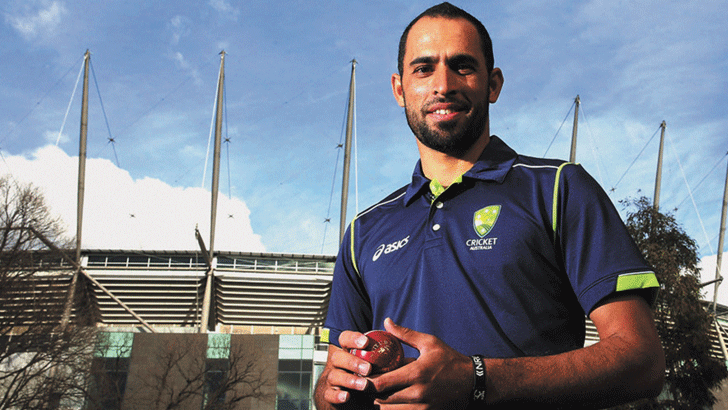From asylum to Ashes

Australian cricket’s six-year search for the next Shane Warne has gone through a conga line of promising prospects who disappear as quickly as they emerge. Fawad Ahmed, 31, an asylum seeker from Pakistan, is the latest leg spinner to have this crushing burden thrust upon him. He’s no Warne, but he’s a talented bowler who was selected in the Australian squad for the one-day series in England in September.
At first glance, it’s a feel-good story about big-hearted Australia welcoming a desperate, frightened human being with open arms, and who is about to repay his adopted country by taking precious English wickets.
As usual, the reality is more complicated. Without being lucky enough to have the powerful lobby of Cricket Australia to plead his case, Ahmed would now be back in Pakistan, fearing that he would end up like a friend and fellow cricketer from his homeland – tortured, murdered and left in pieces in a bag.
Pakistan-born Ahmed fled his homeland in 2010 after receiving constant death threats from religious fanatics because he was coaching women cricketers and promoting women’s education and health. “They terrorised me, they made death threats to me”, he said in an interview with Melbourne media earlier this year. He spoke of the death of his friend, Nauman Habib. “We played together. He was a good friend of mine. They kidnapped him. After a few days somebody found him in a bag in pieces.”
Ahmed also told his story to the Immigration Department several times but, after being initially rejected and then failing through two stages of appeal, he was told to prepare for deportation last September.
As he made clear, the only reason he managed to avoid deportation was the actions of officials at his district cricket club, Melbourne University. They called on James Sutherland, a former bowler at the club and current CEO of Cricket Australia, who no doubt used his access to the halls of power in Canberra to lobby for Ahmed.
It was a successful campaign. The then minister for immigration, Chris Bowen, used his ministerial discretion to grant Ahmed a protection visa late last year. Bowen’s successor, Brendan O’Connor, fast-tracked Ahmed’s citizenship application in time for him to play for Australia in England.
Cricket aside, the Ahmed case has done much to highlight the ability of the government to do one thing and say another on refugee policy. As O’Connor was welcoming Ahmed as a new citizen at a ceremony at the MCG a couple of months ago, and personally validating his claim that he was a victim of persecution, his federal cabinet colleague Bob Carr was on a media blitz to signal a tougher policy on refugee applications. Carr claimed, among other things, that all recent asylum seekers to Australia were economic migrants.
The most recent Immigration Department figures show that 91 percent of asylum seekers arriving by boat are granted refugee status. The figure was 92 percent for Pakistanis. “When it comes to these threats on your life, you don’t have options”, Ahmed said, emphasising that economic reasons, including cricket, had nothing to do with his flight to Australia. “I just came here to live as a normal human being, as a safe human being.”
Carr has not backed off his campaign of demonisation against refugees, continuing to claim that people following the same path as Ahmed were getting an easy ride under a lenient assessment system, the same system that, but for the high-powered intervention of the elite cricket establishment, would have sent Ahmed back to the terror from which he fled. Had a tougher approach on refugee assessments been in place a year ago, our “next Shane Warne” could very easily have ended up in pieces in a bag, not in an Australian cap.
[Trevor hosts Refugee Radio at 3CR in Melbourne. Visit 3cr.org.au/refugeeradioshow to listen to the podcasts]